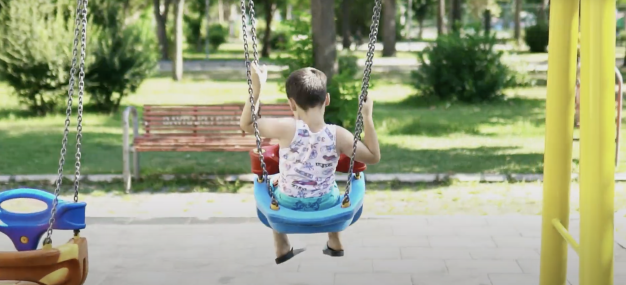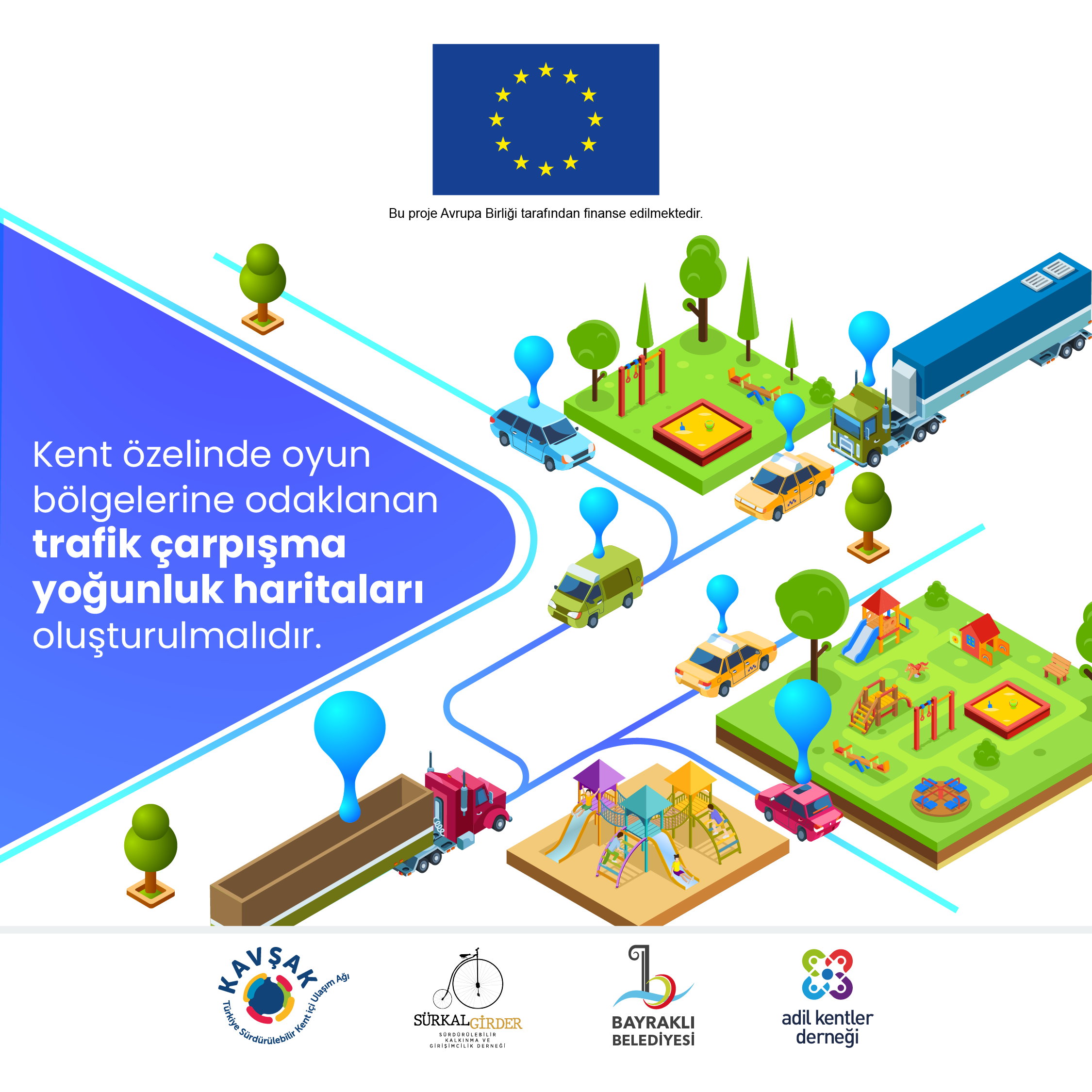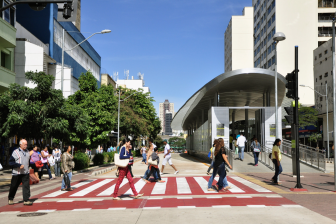
Putting people first: four cities show how to rethink mobility
‘Playground zone safety’ is one of the four key areas in which city planners in Turkey are working with an EU-funded project to re-evaluate how mobility issues are tackled.
But how does this fit in with the current infrastructure? Cigdem Cörek Öztas, Urban Development & Accessibility Manager at WRI Türkiye Sustainable Cities explains:
“For decades, urban transportation policy and practitioners have favoured a model of analysis that prioritises increasing the speed of vehicles and the time saved for people as a result. While this may make sense on an intuitive level, it is a problematic measure.
“What’s important is not the movement of vehicles but rather the access an urban transportation system provides to people, whether it’s getting to work, school, shopping, entertainment or recreation
“Mobility is so cross-cutting and systemic that we must think beyond swapping vehicle types or modes. Instead, we must consider broader questions about how people use transportation, who can access which modes and why, and what’s available to people using various modes. And we must consider the influence of intersectional factors, such as the environment, socioeconomics, gender and culture.
WRI Turkey Sustainable Cities, as the coordinator of the Sustainable Urban Transport Network Turkey (SUTN), an IPA-funded EU project, is collaborating with four cities in Turkey to provide micro-grants to better meet the accessibility and mobility needs of all segments of society. Four grant beneficiaries show how cities can respond to mobility problems by privileging people first.
Istanbul: Improving women’s access to public transport
“Transport and mobility are not gender neutral. Yet gender-disaggregated data on travel behaviour, trips, needs and concerns is often not collected or analyzed. Research shows that transport solutions largely prioritise the needs of men when gender is not explicitly part of the planning process. In order to create more gender-equal solutions and develop practices that better address the needs of women, it is important to explicitly consider gender throughout planning, design, implementation, monitoring and evaluation.
“In Istanbul, the Woman Reaching Public Transport – HEEL micro-grant project of SUTN focused on developing spatial interventions with participatory methods to improve women’s access to public transport to be safer, more secure and more comfortable.
“The Prof. Dr. Turkan Saylan Cultural Center in the Gülsuyu Neighbourhood was suggested by the municipality as a study area because it is a disadvantaged area and women have had security problems accessing buses and subway stations.
“Three main activities were organized within the scope of the project. First, the implementing partners, coordinated by the Sokak Bizim (“Streets Belong to Us”) Association, held a workshop for people living and working in the neighbourhood to identify spatial problems on a model. They noted that dark and deserted streets cause many women to avoid walking at night; parents with strollers cannot use the sidewalk due to cars parked on the sidewalk; there are few ramps to transition from road crossings to the sidewalk safely; and vehicles are moving at high speeds.
“The second event was a design marathon. Students studying design, visual arts, architecture, planning and the social sciences developed solutions to the problems identified in the workshop. Forty-five participants were divided into eight groups and worked with project stakeholders and subject expert mentors to design solutions.
“Finally, in the implementation phase, these proposals were turned into a single action plan. More space was given to pedestrians by painting the asphalt along the sidewalk; benches were installed to allow for resting and sitting on the route; key points were re-greened and re-forested to make the walking route more pleasant and safe; and a game wall was installed for children.
“As a result of the temporary interventions, feedback was received that the area felt safer, more accessible and more enjoyable, especially for women and children, and Maltepe Municipality, in partnership with the Istanbul Metropolitan Municipality, has begun proceedings to make the changes permanent.
İzmit: Bicycle courier deliveries
“Mismanaged urban deliveries contribute to climate emissions, air pollution and poor road safety due to idling, congestion and chaotic curbside usage. Taking action to manage deliveries in a proactive way has the potential to significantly impact city life, including helping local businesses to thrive.
“In İzmit, the Bicycle Courier Network micro-grant project of SUTN is building on an existing initiative that encourages local food production, Good4Trust, to provide urban package deliveries via cyclists.
“First, the implementers, which include the NGO Türetim Ekonomisi Derneği (“Prosumer Economy Society”) and İzmit Municipality, put out a call for people who have bicycles and are interested in additional income by couriering in and around Izmit, establishing a team of 22 people. Then the team was trained on the economic, social and environmental benefits of bicycle couriering as well as safety tips. Finally, and an evaluation was carried out of potential problems regarding a bicycle courier service in the city and how it could be operated, and partners prepared a “Bicycle Courier Application Guide for Local Authorities.”
“After the micro-grant, the project continued under the umbrella of a social enterprise, with the creation of a business model and designing a prototype bike as planned next steps.
Sakarya: Learning to share the road
“Cyclists are among the most vulnerable road users in any city and must be constantly alert to maintain their safety. One way to reduce traffic crashes is to develop empathy for other road users, as focused on by the “Share the Lane and Reach Safely” micro-grant project in Sakarya.
“First, local partners under the coordination of the Sakarya Bisiklet ve Doğa Sporları Derneği (Sakarya Cycling and Outdoor Sports Association) organized a workshop to introduce the project and raise awareness about the concept of road empathy with the participation of 90 people, including local government representatives, law enforcement, non-governmental organizations, academics, public transport drivers, bicycle users, driving instructors and bicycle-friendly business owners.
“Next, empathy trainings with different stakeholders followed. Cyclists learned about the braking distances of various vehicles, blind spots, and the use of safety and high-visibility equipment. Taxi and minibus drivers were trained on the use of rearview and side mirrors, the importance of keeping a distance of 1.5 meters between vehicles, mirror control and opening the door with the right hand so that you always look behind you.
“These trainings helped different drivers better understand each other’s conditions and increased their awareness. Later, a social media campaign was launched asking “what should be done in our city for safe cycling,” and helmets, reflective vests and reflective armbands distributed to cyclists.
İzmir: Playground zone safety

“As Turkey’s third-largest city and with an increasing rate of urbanisation, İzmir is trying to cope with traffic problems, and the effects are wider than just long commute times and air pollution. In August 2022, the İzmir Child Studies Network asked the children living in Bayraklı, İzmir, about their opinions on playgrounds. One hunrded children aged 10 to 15 living in 15 neighbourhoods in the district participated in the study. Questions were asked about the safety, accessibility, comfort and cleanliness of the playgrounds. One of the main findings of the report was that 44 per cent of children said that it is not safe to access the playground from home because of car traffic and non-pedestrian oriented road design.
“The SUTN supported the team that carried out this survey to conduct an awareness study and communications campaign, under the coordination of the Sürdürülebilir Kalkınma ve Girişimcilik Derneği (Sustainable Development and Entrepreneurship Association).
A social media campaign was prepared to emphasise that the fundamental “right to play” and that ensuring the safety of the roads around and leading to playgrounds is also important in terms of sustainable transportation.
“To convey the message that this vision of transportation policy is possible, a 15-minute video featuring drone shooting techniques was prepared and public meetings were held on online platforms to increase awareness.
“Finally, a joint declaration was prepared by the stakeholders that a Bayraklı sustainable transportation action plan should be prepared with the participation of children; that ensuring road safety in urban transportation encourages children to be comfortable walking and cycling; that local administrations should prepare road safety action plans for playgrounds and play routes where children can travel on foot and by bicycle; and that the campaign should be supported with outreach activities in public places like parks, meeting points and bicycle workshops.
Small steps, big impacts
“With the impacts of climate change and ever-increasing traffic congestion, urban policymakers are under pressure to plan and implement new transport solutions in many cities. In Turkey, we see many local authorities launching new initiatives to diversify and expand public transport systems, and with that a new era is possible in which intersectoral and inter-stakeholder cooperation is brought to the fore.
“These micro-grant projects, while small, show how we can rethink urban transport and mobility by prioritizing people with different expectations and needs than we have in the past. In all, cooperation and participation were the elements that stood out and proved necessary for their realization. Projects carried out by public, private, university and NGO stakeholders together have many champions that can carry them forward. We hope such initiatives can eventually form the main pillar of urban mobility.”
Originally published by TheCityFix.com, part of the World Resources Institute (WRI) and reproduced here under Creative Commons Licensing guidelines.
Cigdem Cörek Öztas is Urban Development & Accessibility Manager at WRI Türkiye Sustainable Cities.




